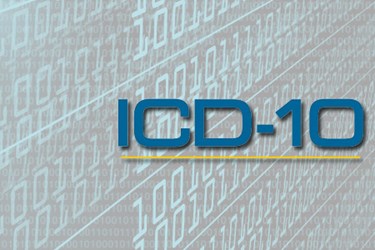Larger Healthcare Providers Mostly Prepared For ICD-10 Testing

By Christine Kern, contributing writer

Larger organizations are more prepared than smaller ones for the ICD-10 end-to-end testing.
A recent AHIMA/eHealth Initiative survey found a higher number of healthcare executives recognize the long-term benefits of using ICD-10 compared to last year and have plans to utilize the code set for quality improvement and performance measurement after implementation.
The survey queried 454 healthcare representatives from hospitals and physicians practices, examining readiness for testing and implementation, anticipated financial, clinical, and operational impact, as well as the strategic implications of an expanded code set.
The report reveals preparation levels of healthcare organizations regarding the impending ICD-10 implementation and their perceptions of how ICD-10 will impact their operations. But while the majority of larger healthcare organizations apparently are prepared for end-to-end testing before the October 1, 2015 deadline, smaller organizations report they are lagging behind.
The report found, “Compared to data from a similar survey in 2013, the percentage of respondents planning to use ICD-10 for quality improvement, performance measurement, and outcomes measurement has increased, suggesting that organizations may better recognize the potential benefits of ICD-10 as they grow more familiar with the code set.”
Of respondents, 65 percent were prepared to begin end-to-end testing prior to October 2015, including 63 percent who indicated they would be ready to conduct testing by the end of the year; ten percent with no plans to test; and 17 percent with no anticipated testing date. Nearly half of those unprepared or unwilling to test were clinics or physician practices, which the report stated could suggest “a knowledge gap around ICD-10 implementation and testing for those organizations with fewer resources.”
However, the report does reveal that, despite the most recent implementation delays, most of the members of the healthcare community have continued preparations for the coding transition, according to AHIMA CEO Lynne Thomas Gordon.
Healthcare Informatics adds that, in March, Congress delayed the ICD-10 transition to October 1, 2015. Overall, industry reaction to the delay has been not been positive, with many expressing doubt over the utility of the new coding system and over the ability of most organizations to meet the deadlines. A recent Workgroup for Electronic Data Interchange (WEDI) survey revealed that there has been little progress overall by providers making the transition to ICD-10, while health plans and vendors are better prepared.
“These results demonstrate that the healthcare community has stayed on track with preparation despite delays and that as healthcare executives continue to learn more about the specificity in ICD-10, they see clear value in it,” Thomas Gordon said in an article from AHIMA Journal. “AHIMA will continue to provide training and resources to help healthcare organizations, including small physician groups, prepare for implementation so all healthcare organizations and patients will experience the benefits of a modern and robust coding system.”
